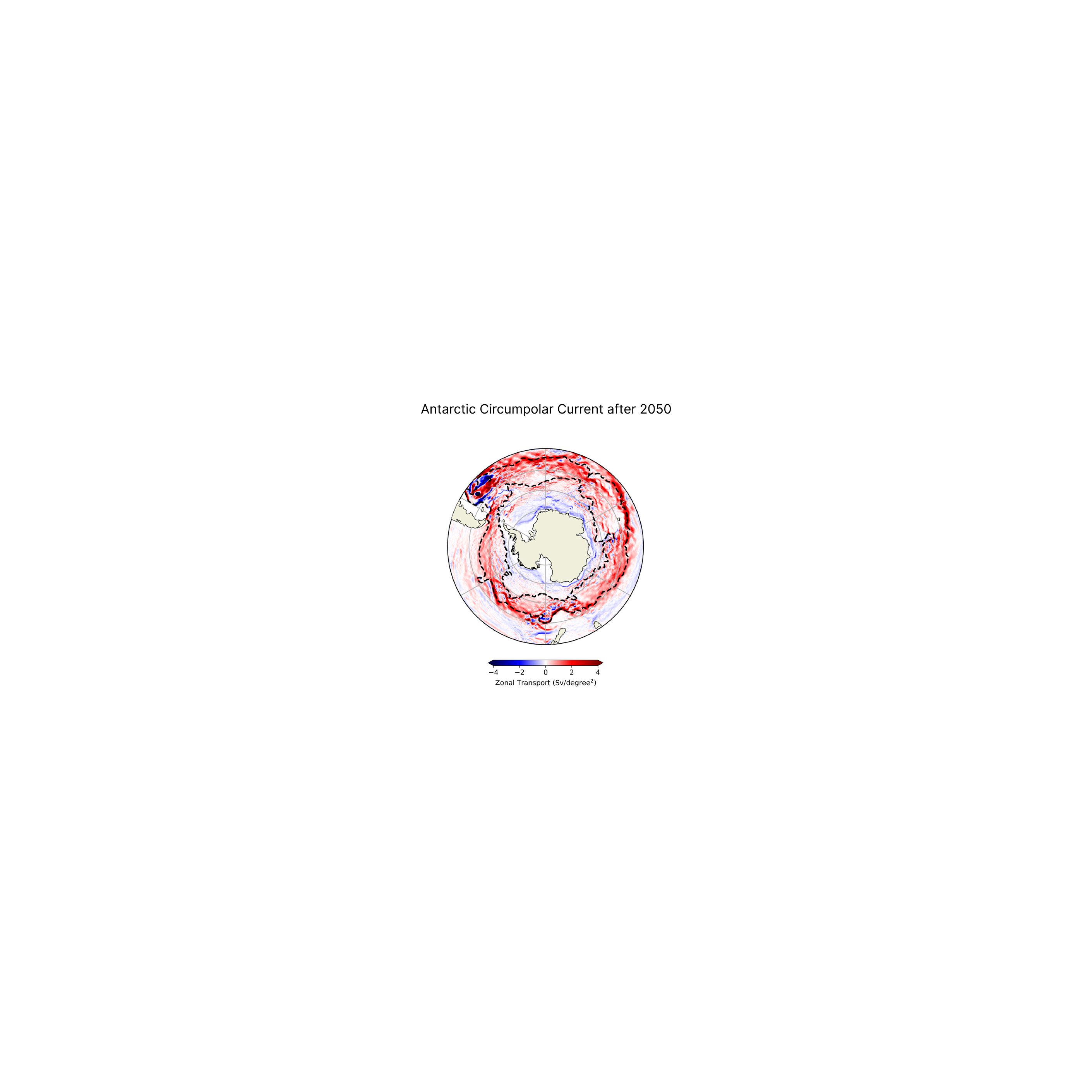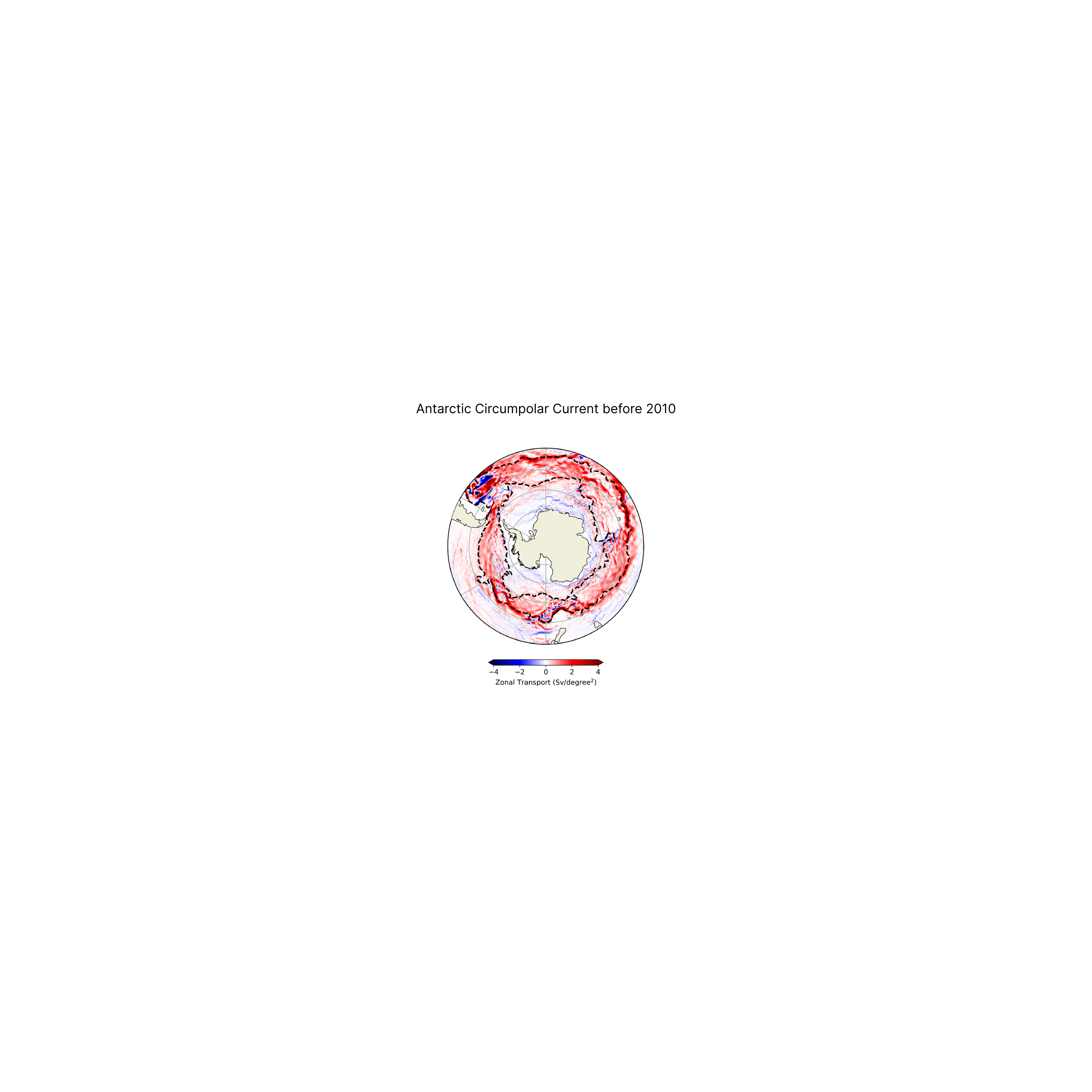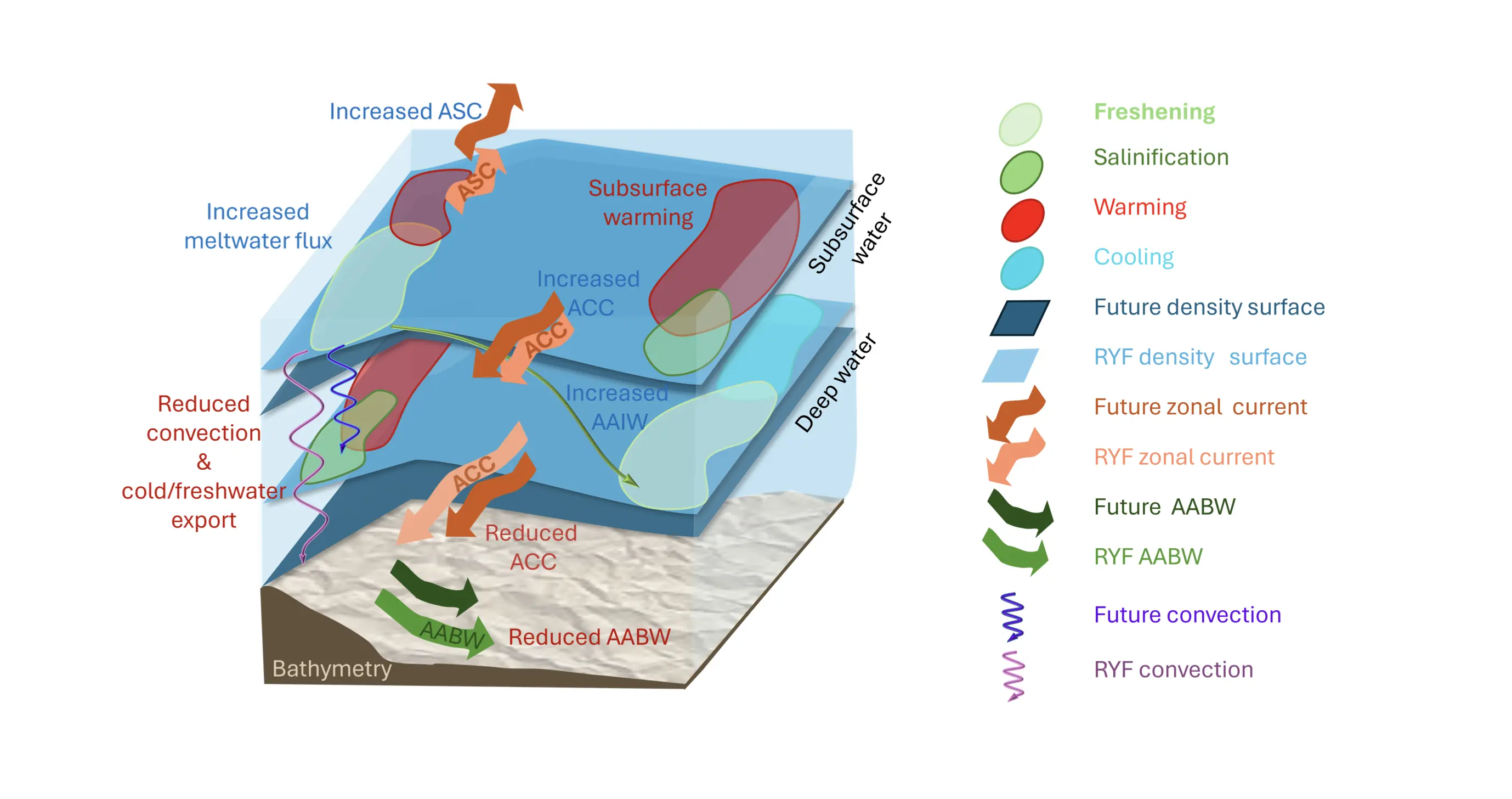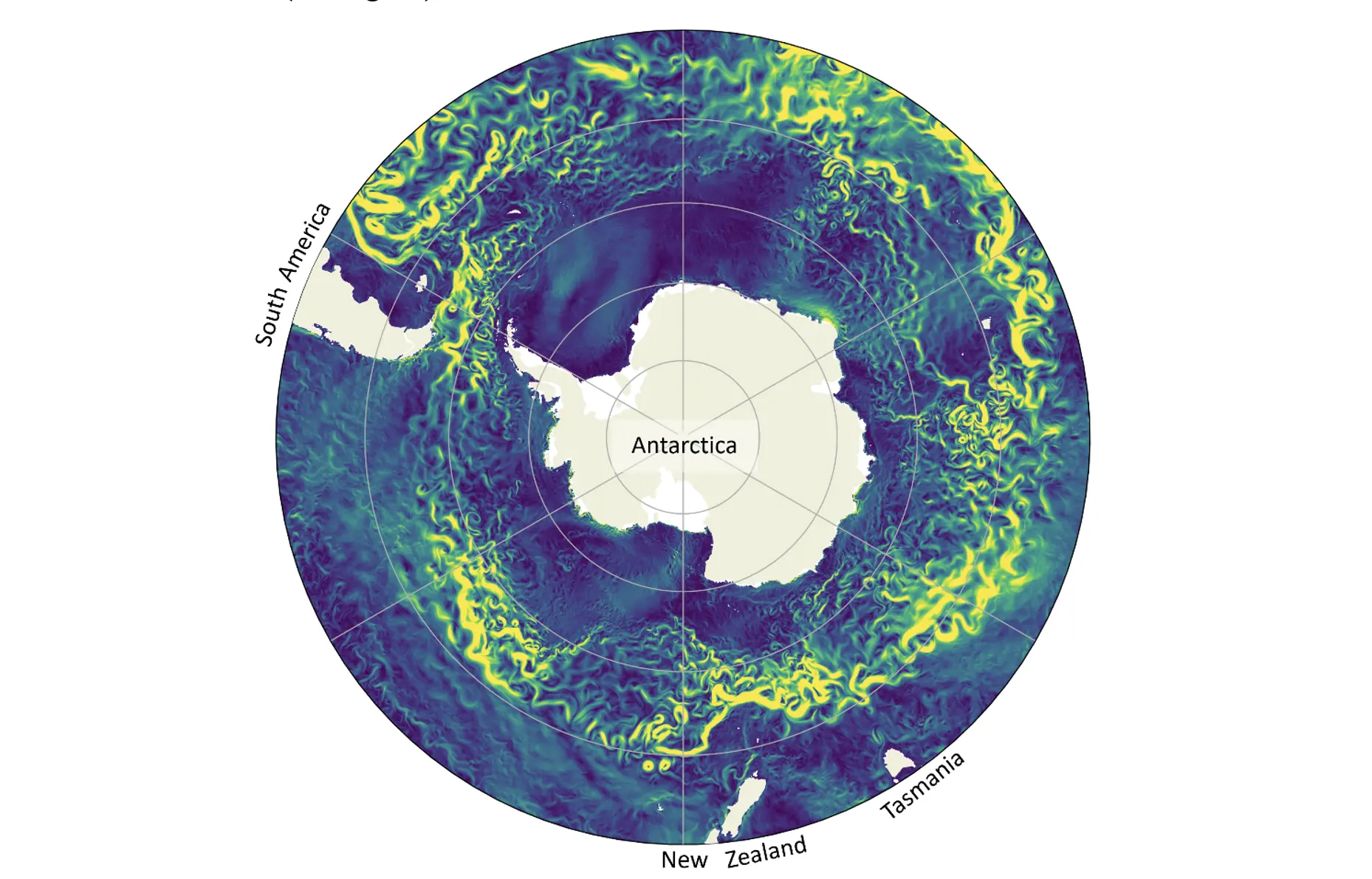
The world’s most powerful ocean current could slow by 2050

New research finds the more Antarctic ice melts, the more the ocean is flooded by melt water, the more the Antarctic Circumpolar Current is likely to slow down – creating a vicious climate change cycle
Published 3 March 2025
The world’s most powerful ocean current could slow by 2050
The ocean is a vital part of our planet's climate system. Through its global circulation patterns, the ocean draws vast quantities of our planet’s heat and carbon dioxide out of the atmosphere.
It’s also home to vast ecosystems that sustain life both on- and offshore.
Given its key role in regulating the global climate, any change to the world’s ocean ‘conveyor belt’ is likely to have major consequences.
In recent years, there’s been a growing scientific consensus that parts of this global ocean circulation – something called the meridional overturning circulation – are facing a catastrophic collapse.
You may already be familiar with some of the features of the meridional overturning circulation – there’s the Gulf Stream along the east coast of the United States or the East Australian Current, which regulates ocean temperatures between Brisbane and the south coast of New South Wales.

But there’s also a much less well-known behemoth of a current that sits just to Australia’s south.
It’s called the Antarctic Circumpolar Current (ACC) and it’s enriched with eddies and jets. It flows around Antarctica and connects our planet’s three major ocean basins – the Pacific, Atlantic and Indian Oceans.
The ACC is more than 100 times stronger than the current of the Amazon River and five times stronger than the Gulf Stream.
It’s a powerful current that separates the Antarctic continent from its northern neighbours, acting as a physical and oceanographic barrier that isolates the icy continent.


Slide to see the modelling of the decline of ACC from 2010 to 2050. Graphic: Supplied
Given its power, any changes are likely to have an impact on the health of the Antarctic continent – but are also likely to affect our global climate.
Over the years, there has been a lot of scientific debate about the impact of climate change on the ACC.
The theory was that warming oceans around Antarctica should cause the ACC to speed up.
Although recent research has shown that the ACC’s strength hasn’t changed significantly, the impact of Antarctica’s melting ice is less well understood by the science. So our team designed a new model to look more closely at its impact.

Sciences & Technology
What pancake ice tells us about the climate
Our new study, published in Environmental Research Letters, has found that the ACC is likely to slow down by up to 20 per cent in 2050 if high carbon-emissions continue.
We analysed a state-of-the-art model projection of the global ocean, created by colleagues at the University of New South Wales, which finds that the key driver of this slowdown is ice melting around Antarctica.
The more ice melts, the more the polar ocean is inundated by melt water, the more the ACC slows down.
So, what does a slowing of the ACC mean for our climate?

Because this strong current surrounds Antarctica, it helps prevent warm water and invasive species from migrating to this pristine continent.
If the ACC were to weaken, it may allow the migration of warmer water towards Antarctica, which would cause more ice to melt and slow the current even more – creating a vicious cycle.
And with that warm water comes the potential for migrating invasive species like the Southern Bull Kelp to reach Antarctica, disturbing the delicate food web there – something the ACC may currently help to prevent,
Beyond the local impacts of an ACC slowdown, there are also the global repercussions.

Sciences & Technology
Keeping Antarctica clean
This acceleration of melting ice will drive faster sea level rise.
While a slowdown, along with any decline in ACC strength, will reduce the ocean’s ability to absorb heat and carbon from the atmosphere.
This has the potential to speed up climate change – both on land and in the ocean.
So, are we 100 per cent sure these changes to the ACC are going to happen? Not necessarily.

While we are confident that the melting ice will slow down the ACC, it’s unclear how much and where.
Some studies suggest it may be too late to prevent melting in West Antarctica, but East Antarctic melting remains potentially preventable.
To do this, the world must focus on reducing greenhouse gas emissions to prevent the ocean absorbing more atmospheric heat that’s ultimately directed towards Antarctica.
Although our climate outlook remains uncertain, we can take concrete action to reduce carbon emissions to mitigate the potential impact of global warming on our planet’s climate ecosystem.

